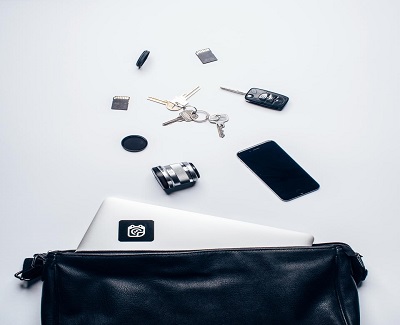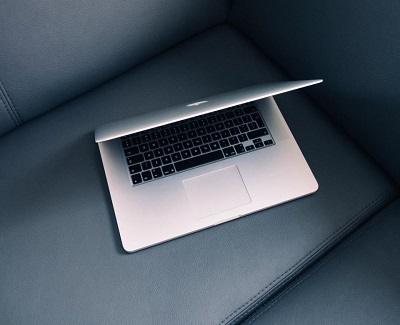Laptops are lovely. They are convenient, mobile and powerful. They are also thief magnets. Over 400,000 laptops disappear each year, leaving their owners wondering where they went, what is happening with their data and what to do next. Some of the laptops are just lost – left in cabs, at hotels, restaurants and at conferences and events. Many of these laptops (but not all) find their way back to their lucky owners.
Some are stolen by people – many of them co-workers, service staff or people taking advantage of a “moment of opportunity” – who just want to have a laptop. Some are stolen by professional “Laptop Lifters” who may work in teams to steal the laptops for resale. And others are stolen, not for the laptop itself, which may be a bonus, but for the data on the laptop’s hard drive – financial or identity data or business plans or data.
1) Securing the actual laptop – There are many ways to control the physical security of a laptop.
Cable locks
There are cable locks that can be attached to an immovable object to make it more difficult to just pick up the laptop and walk away. Although these cables can be cut with a bolt cutter, some of them are combined with an alarm that will sound if the cable is cut. Alarms or motion detectors are also available without the cable locks. They can be set to activate whenever the laptop is moved or when the laptop is moved a certain distance away from a pocket receiver that the owner has, which also alerts the owner.
Laptop Bag
Use a laptop carrying bag that does not look like a laptop case. Having a laptop case that says IBM or Sony is advertising that you are carrying a highly valuable commodity. Consider using a backpack with your laptop in it in a padded sleeve. One of the prime places for laptop theft is the men’s bathroom in airports and convention centers. Another prime place that laptops are stolen is at pay phones in a busy area. Just as there are pickpocket teams, one of whom distracts you by “accidentally” bumping into you while the other steals your wallet, there are “Laptop Lifters” one of whom will accidentally spill something on you while the other walks off with your laptop.

Be vigilant
A good rule to follow is: any time there is a diversion near you, put your hand on your laptop. People usually feel comfortable at conferences and conventions. After all, you are usually surrounded by your peers, and there are often convention staff around to provide security. Often the theft will take place on the second or third day, when IDs for entry are not being checked as stringently, and many of the attendees are NOT wearing their badges.
Many times people will leave laptops unguarded on or under conference tables during breaks. It’s a good idea to engrave your company information prominently on the outside of the laptop and on its carrying case. It makes it less attractive to the thief, because it makes it easy to identify and makes it harder to sell. Having a large or conspicuously colored luggage tag securely affixed makes it less attractive because thieves like to be “invisible.” You also should be sure to send in that little registration card that came with your laptop.

Sometimes a stolen laptop will be sent back to the manufacturer for repair by the person who had innocently bought it from the thief. You may get your laptop back this way. Don’t leave your laptop in your car. If it is visible, you may lose your laptop AND have to pay for the damage to your car. Rental cars are often the special target of thieves, especially at popular restaurants or shopping malls. Plus, the extremes of temperature (both hot AND cold), can either fry your laptop or freeze the LCD screen.
2) Data Security – Losing your laptop may mean you’ll have to shell out $300 – $1000 for a new one. Losing your data can be MUCH more serious.
Many people ONLY have a laptop, so ALL of their data is on it. Plus, most people don’t back up their data as often as they should. Replacing the data can be a pain. But losing your PERSONAL data, including perhaps your Social Security number, PIN numbers, credit card info, etc can be a form of personal hell. Here are some basic tips you should take:

- Firewall – When buying a new computer, it is important for you to turn the firewall on. For example, you’re buying a Windows 7 operating system computer, what you need to do is turn on the Windows Firewall first before going online. Even though it cannot protect you completely, but it is good enough to protect your PC before you buy a new firewall.
- Back up your data – That way, if your laptop is lost or stolen, you have not lost your files. Consider keeping sensitive files off your laptop hard drive. A USB storage device is also quite handy.
- Email – Attachments in unknown emails are usually a threat. Never open any attachment from an unknown email. Sometimes, the email subject said something about you getting a greeting card and ask you to click the link inside that email. I’ve opened this type of email and was attacked by a trojan horse. Luckily my antivirus aborted the connection. If the link inside that email is something like an ip address (http://aaa.bbb.x.y/) instead of a domain name, never click it.
- Update Your Virus Definition – Installing an antivirus will not be enough. Constant update is needed so you can receive new virus definition. New threats are being created every day and updating your virus definition on regular basis is crucial to detect newer threats.
- Don’t Surf Suspicious Sites – Opening a porn site or a warez site will also increase your risk of getting a virus. Application such as cracks and patches from warez sites will also increase your risk. Furthermore, it’s illegal.
3) Getting your laptop back
So the worst has happened and your laptop has disappeared. Hopefully, you have your name and phone number on it somewhere, so it can be returned to you if it was just left in.
